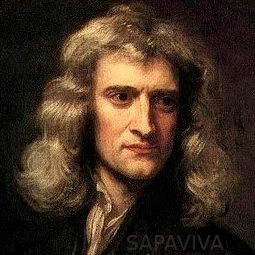(January 4, 1643 – March 31, 1727)
Isaac Newton is the greatest and the most influential scientist this world has ever known. His brilliance ramified all branches of Applied Mathematics. He made groundbreaking advances in Mechanics, Astronomy, Binomials, Calculus, Heat, Acoustics and Optics which revolutionized science like nobody did before or after him. Newton’s works on Mathematical Physics were ingenious, unprecedented and unparalleled. They outstripped his exploits on “Fluxions”; and ensured that his ratings as mathematician remained very high. His intellect complimented his voracious appetite for work. That was why he wrote extensively on Math, Science and Religion. In 1669 (aged 26), he succeeded Isaac Barrow as the Lucasian Professor of Mathematics at Cambridge. Settled in this position, he proceeded to give science the solid foundation it has today. This breath of fresh air has served as template for uncountable technological developments. Prior to Isaac Newton, our world emphasized Natural Philosophy; and after him, we transitioned to Science. Co-inventor of Calculus, his Principia Mathematica is the most prized and the most revered publication in the history of science. His influences and contributions were far-reaching: just as their impacts on the Scientific Revolution were unsurpassed. His Equivalence Principle paved the way for Albert Einstein’s Relativity Theory. But unlike Einstein, (whose incipient and incongruous algebraic approach to Relativity prompted immediate geometric upgrade from Bernhard Riemann’s and Hermann Minkowski’s works), Newton adeptly developed all the math frameworks which anchored his theories and laws. This edge alongside boundless scope consolidated Newton’s superior versatility; and render fatuous, the frequent comparisons with Einstein.


Naturally like your website.
Great post! Bookmarking it was a good decision.
Valuable information. I bookmarked it.
His impact on physical sciences is out of this world.
Newton was a class act.
Quite an achievement
A round of applause!
Honour to whom honour is due!
I love this website! It gives me the information I need to know about Issac Newton.
Very nice post and straight to the point.
Interesting!
Keep up the good works guys I’ve included you guys in my blogroll.
Thanks for this. I believe that those people who rank Einstein above Newton are shortsighted.
Great line up in these rankings.
Well, well, well, well.
I like this blog.